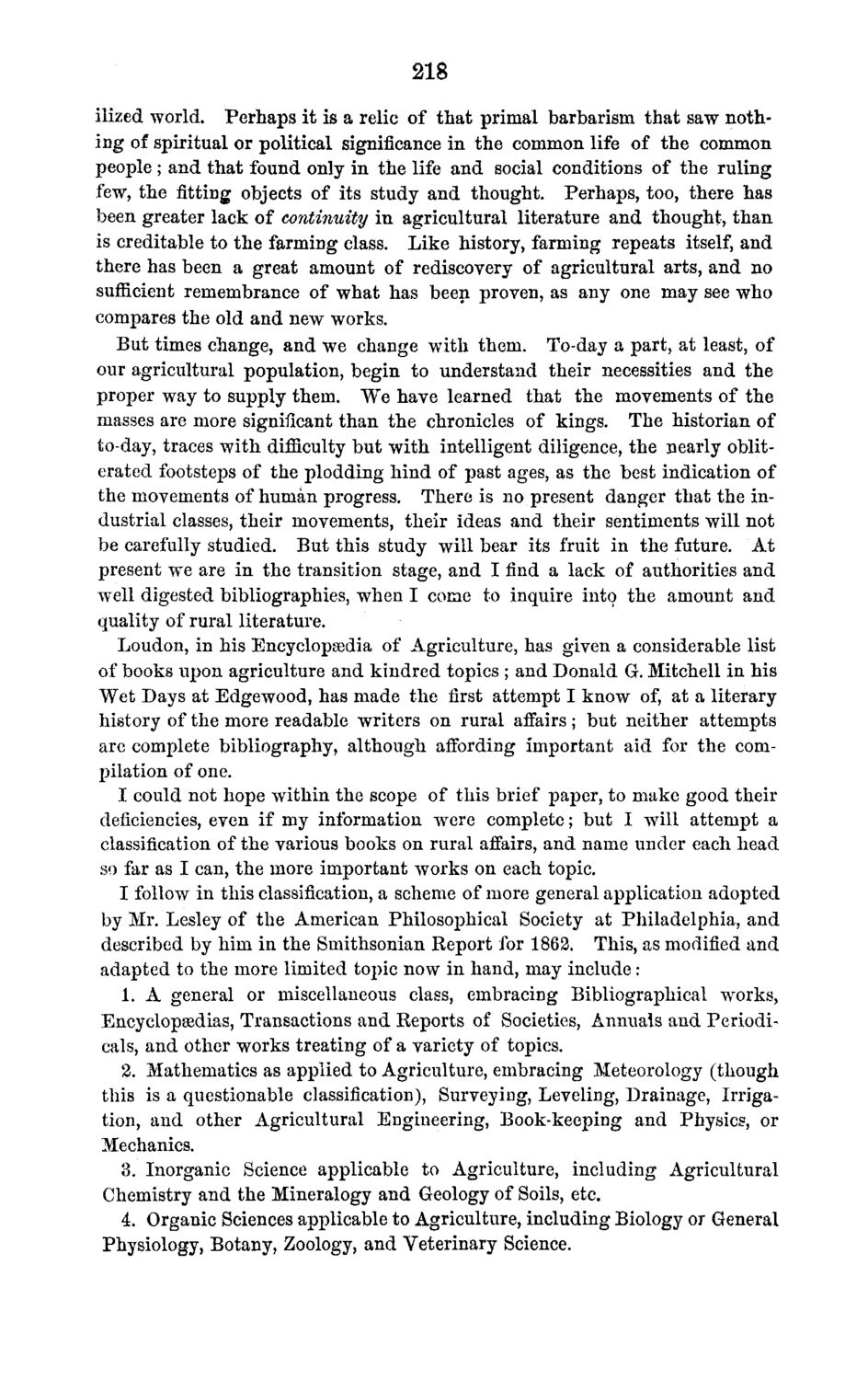| |
| |
Caption: Board of Trustees Minutes - 1870
This is a reduced-resolution page image for fast online browsing.

EXTRACTED TEXT FROM PAGE:
218 ilized world. Perhaps it is a relic of that primal barbarism that saw nothing of spiritual or political significance in the common life of the common people; and that found only in the life and social conditions of the ruling few, the fitting objects of its study and thought. Perhaps, too, there has been greater lack of continuity in agricultural literature and thought, than is creditable to the farming class. Like history, farming repeats itself, and there has been a great amount of rediscovery of agricultural arts, and no sufficient remembrance of what has been proven, as any one may see who compares the old and new works. But times change, and we change with them. To-day a part, at least, of our agricultural population, begin to understand their necessities and the proper way to supply them. We have learned that the movements of the masses are more significant than the chronicles of kings. The historian of to-day, traces with difficulty but with intelligent diligence, the nearly obliterated footsteps of the plodding hind of past ages, as the best indication of the movements of human progress. There is no present danger that the industrial classes, their movements, their ideas and their sentiments will not be carefully studied. But this study will bear its fruit in the future. At present we are in the transition stage, and I find a lack of authorities and well digested bibliographies, when I come to inquire into the amount and quality of rural literature. Loudon, in his Encyclopaedia of Agriculture, has given a considerable list of books upon agriculture and kindred topics ; and Donald G. Mitchell in his Wet Days at Edgewood, has made the first attempt I know of, at a literary history of the more readable writers on rural affairs; but neither attempts are complete bibliography, although affording important aid for the compilation of one. I could not hope within the scope of this brief paper, to make good their deficiencies, even if my information were complete; but I will attempt a classification of the various books on rural affairs, and name under each head so far as I can, the more important works on each topic. I follow in this classification, a scheme of more general application adopted by Mr. Lesley of the American Philosophical Society at Philadelphia, and described by him in the Smithsonian Report for 1862. This, as modified and adapted to the more limited topic now in hand, may include: 1. A general or miscellaneous class, embracing Bibliographical works, Encyclopaedias, Transactions and Reports of Societies, Annuals and Periodicals, and other works treating of a variety of topics. 2. Mathematics as applied to Agriculture, embracing Meteorology (though this is a questionable classification), Surveying, Leveling, Drainage, Irrigation, and other Agricultural Engineering, Book-keeping and Physics, or Mechanics. 3. Inorganic Science applicable to Agriculture, including Agricultural Chemistry and the Mineralogy and Geology of Soils, etc. 4. Organic Sciences applicable to Agriculture, including Biology or General Physiology, Botany, Zoology, and Veterinary Science.
| |